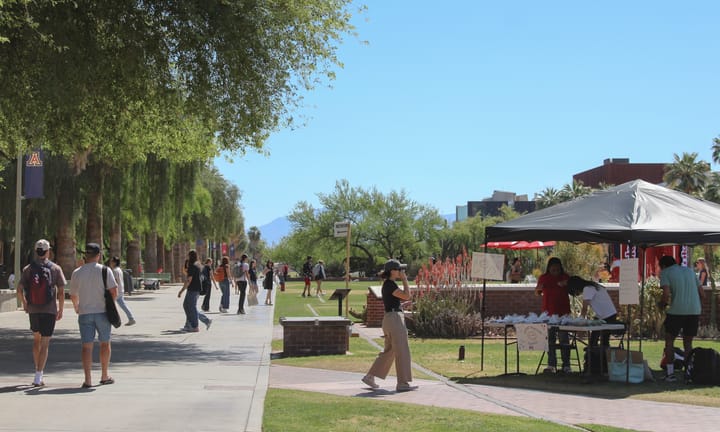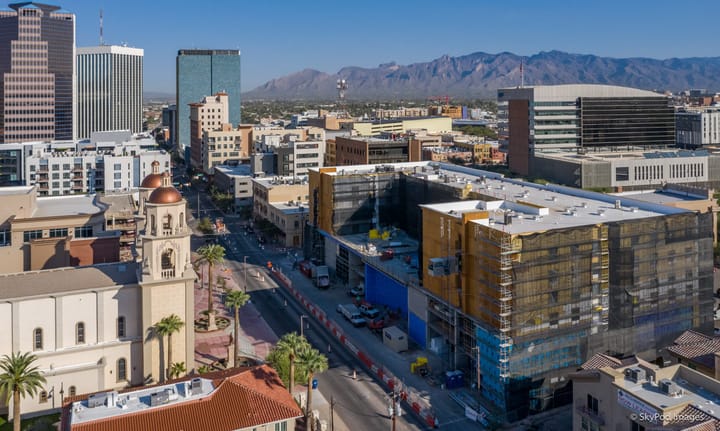South Tucson program empowers unhoused with landscaping skills
Barrio Keepers, a volunteer program in South Tucson, empowers unhoused individuals by teaching landscaping skills, fostering community pride, and providing a path toward stability through beautification efforts.
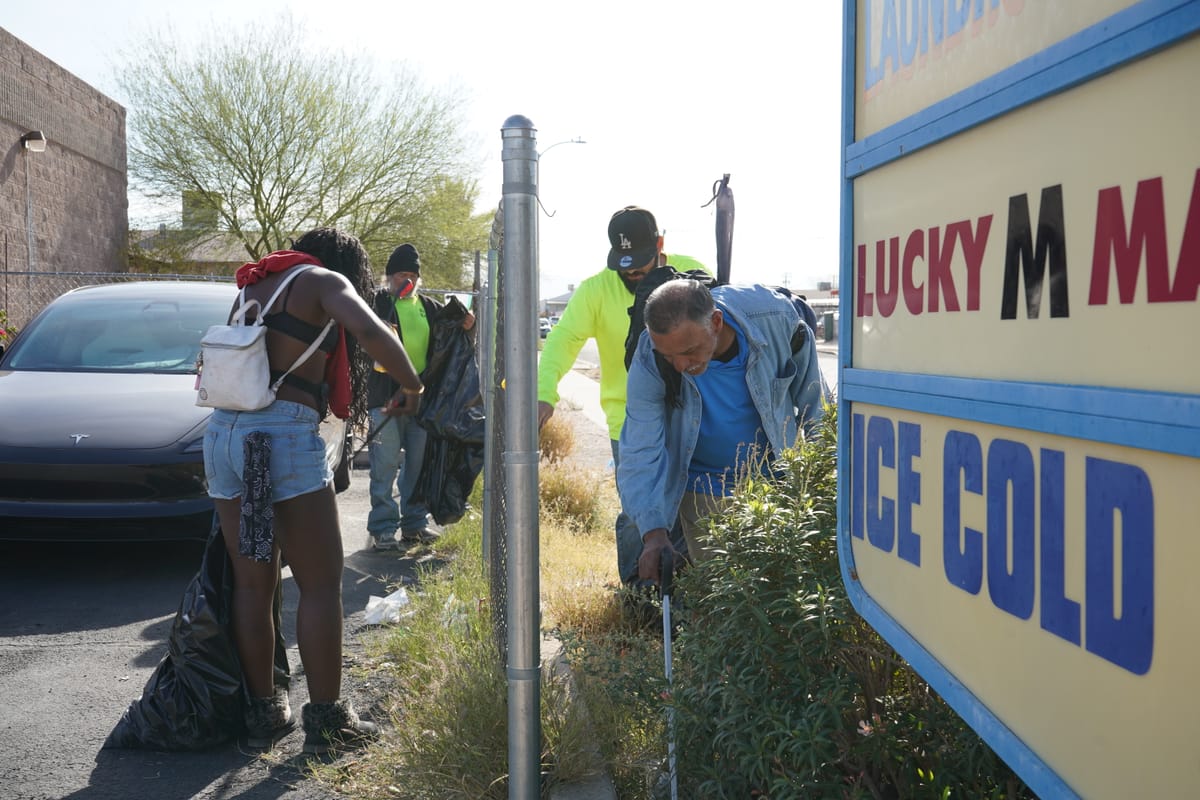
A new program in South Tucson aims to teach landscaping skills to unhoused individuals, equipping them with knowledge, pride and a sense of ownership in their community.
Barrio Keepers is a partnership between Barrio Restoration’s David Garcia and Casa Maria Soup Kitchen, with South Tucson Mayor and Casa Maria organizer Roxanna Valenzuela leading the project.
It hopes to tackle a handful of problems afflicting South Tucson and beyond: homelessness, substance use, job creation and a cleaner, more dignified community.
“We are trying to figure out creative solutions to deal with this, because we don't have a lot of resources, but we have people and we have pride and we do have a lot of heart,” Valenzuela said.
Volunteers with Barrio Keepers are responsible for cleaning South 6th and 4th avenues, the two main roads that run through South Tucson, on Tuesdays, Thursdays and Fridays. They’re equipped with tools to pick up trash and clean curbs, and they wear bright-colored “Barrio Keeper” uniform shirts.
The program soft-launched about three months ago, and has already grown to employ over 10 keepers. Barrio Keepers got its start after Garcia reached out to Valenzuela, wanting to start a program that would impart skills and knowledge to the community.
He wanted to do it through Casa Maria and after months of conversations, finally at the end of last year, they decided to dive in, head-first.
“The neighborhood is our home, we have to take care of it every day,” Garcia said. “When you keep your neighborhood clean, it creates a safer environment, a respectable environment to where nobody wants to be dumping their trash. We have to take ownership again.”
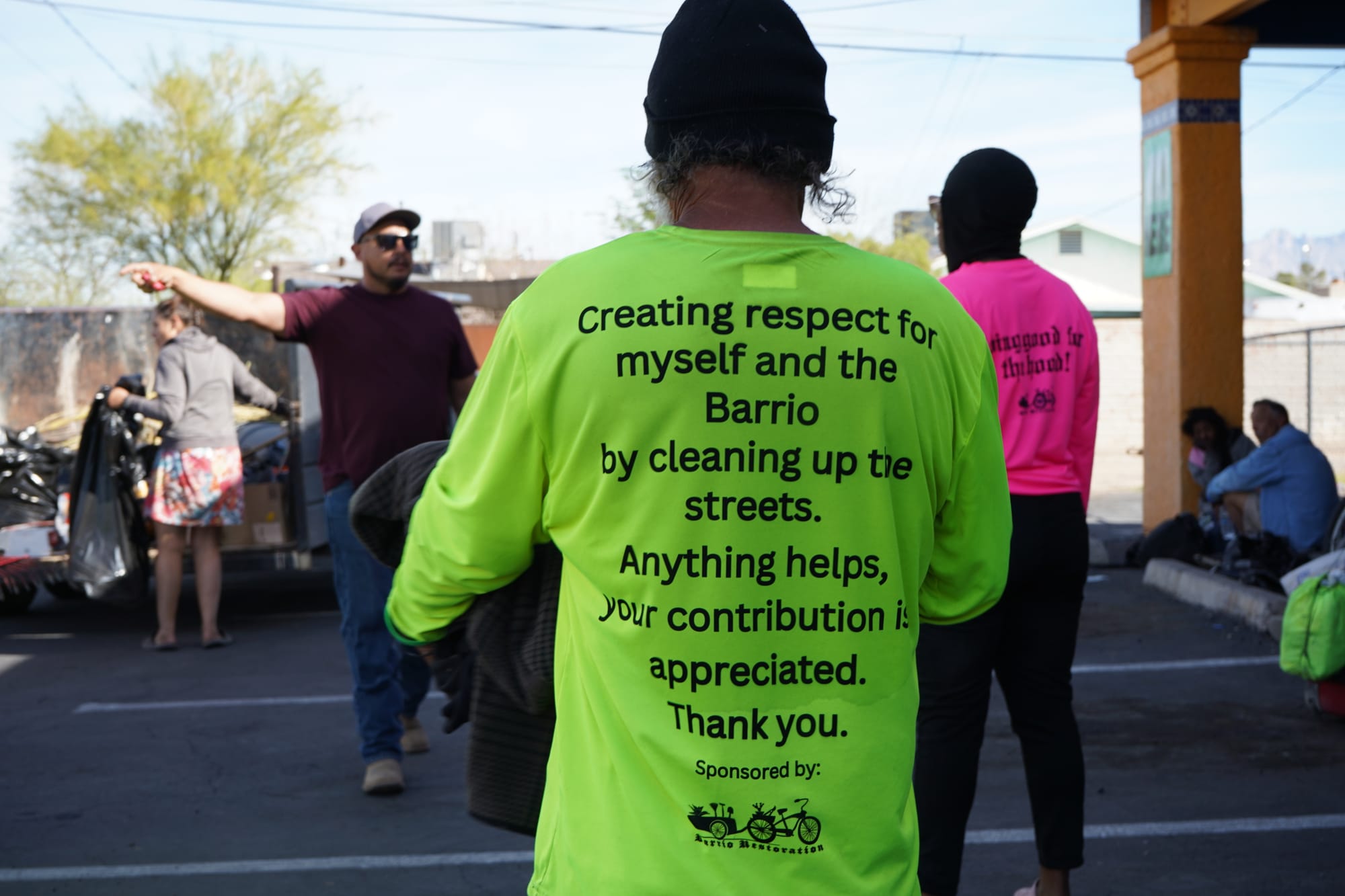
Garcia modeled Barrio Keepers after his company, Barrio Restoration, a community group dedicated to cleaning and beautifying Tucson’s south side, while also activating the community and the youth.
Through Barrio Restoration, Garcia teaches skills like upcycling and landscaping. He also provides affordable yard and streetscaping services, with his colorful tire planters visible in neighborhoods and at businesses around town.
Barrio Restoration quickly picked up steam, and now dozens of volunteers turn out for the group’s weekend “Cumbias y Comunidad” events.
Garcia said he didn’t start Barrio Restoration expecting to make money. Instead, he trusted his community to see the value in what he does and invest in him, and that’s exactly what happened.
Now, he hopes to instill that same trust in the community to Barrio Keepers.
“This worked for me, and I know it can work for you,” he said. “What you have to do is put that energy out.”
For Garcia, Barrio Keepers is personal. He’s seen close family members taken by the street, understands how a person becomes unhoused and how people can overcome those challenges.
“I came from the bottom, the same struggles that can resonate with you. I've been in those environments,” Garcia says. “These people are related to somebody, (they’re) somebody's dad, somebody's mom, somebody's brother, sister is out here, and we're having to watch. We're a program that wants to do something.”
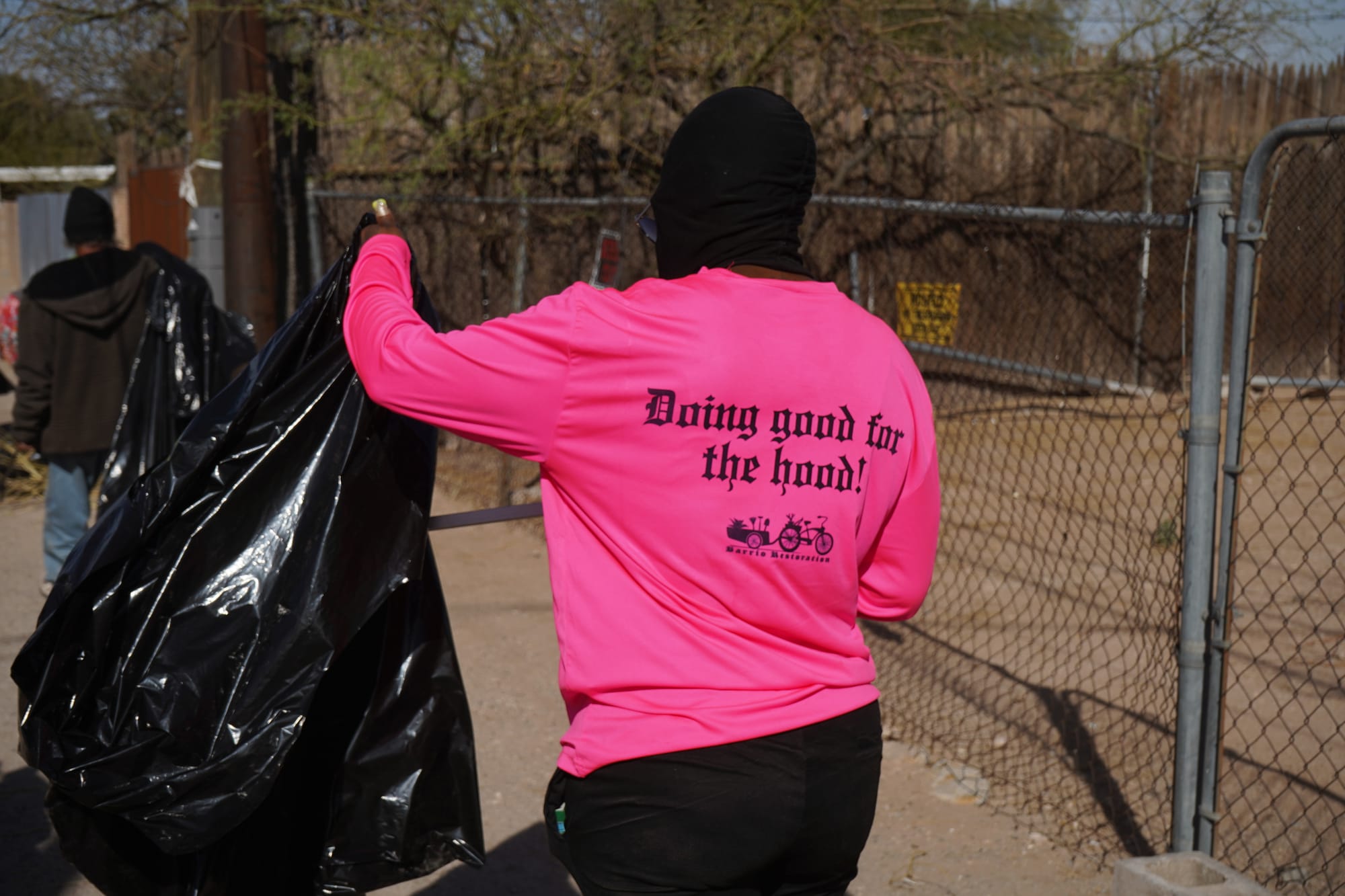
The program is completely volunteer-based with no expectation of pay, but that’s been changing as donations are made to the program.
Still, there have been a few hiccups.
The project was set to launch with 15 volunteers, but once they heard that they wouldn’t be paid, participation dropped to just four people, two men and two women.
“The folks that do stay are the folks that I think want to make an investment in themselves, a change in their own lives,” Garcia said.
While volunteers were at first hesitant to participate in Barrio Keepers, apprehensive that they may be getting taken advantage of, Valenzuela said they soon came around to the idea of “doing good for the hood.”
Ashleigh Clark has been a volunteer for three weeks and said she’s very much enjoying the experience.
“I love protecting my hood. It means to be proud and spread love and joy and to take care of not just only my square house, but the whole neighborhood,” she said during Friday’s cleanup. “It's not just about me, it's about all of us. If all of us can live happily then it's going to be a good world.”
Clark lives at the Arizona Motel, a property owned by Casa Maria’s sister organization Barrios Unidos Land Trust, which manages affordable housing.
Clark said she jumped at the opportunity to work with Barrio Keepers when Valenzuela first referred her. She’s loved being able to socialize with others and use her hands to learn “manly” skills, even though she considers herself a “girly girl.”

She also loves being able to learn about starting a business, saying she hopes to start her own one day.
“I want to be bigger than this of course but know you gotta start somewhere,” Clark said. “You gotta crawl before you walk.”
Another volunteer, Jeff, said he was cleaning up the streets of South Tucson even before he became a Barrio Keeper. He moved to Tucson from Louisiana to be with his sister, but fell into bad times. Still, he never let that stop him from keeping his environment clean and dignified.
Jeff heard about the program at Casa Maria, where he goes every day for a hot meal. He said it’s nice to know other people care about the neighborhood too.
“I always pick up when I just waltz around,” said one keeper who asked to remain anonymous. “I try to leave it cleaner than it was when I got there because we have a bad rap. You can at least lead by example, you know?”
Another keeper talked about his experiences living in the streets, being considered a trespasser everywhere he goes. He said he’s had cops kick him while he sleeps to get him off of private property and just last week, he was beaten by a man near Miracle Mile for trespassing into a trailer park while looking for a safe place to sleep.
“We’re human too,” he said, adding that if he could ask for anything, it would be for a job, but being homeless makes that impossible.
Many other keepers said their lack of housing is the biggest impediment for upward mobility.
“It's hard to have a job and not have a place to stay. Impossible. Where are you going to shower? Where are you going to sleep? Where are you going to get your rest for work? It's impossible,” said another keeper, Jay. “Once you do get housing, you'll be able to go and look for that job, whatever you want to do, because now you have a roof over your head and you're safe. I'm not safe out here. I don’t go to sleep because I don’t feel safe.”
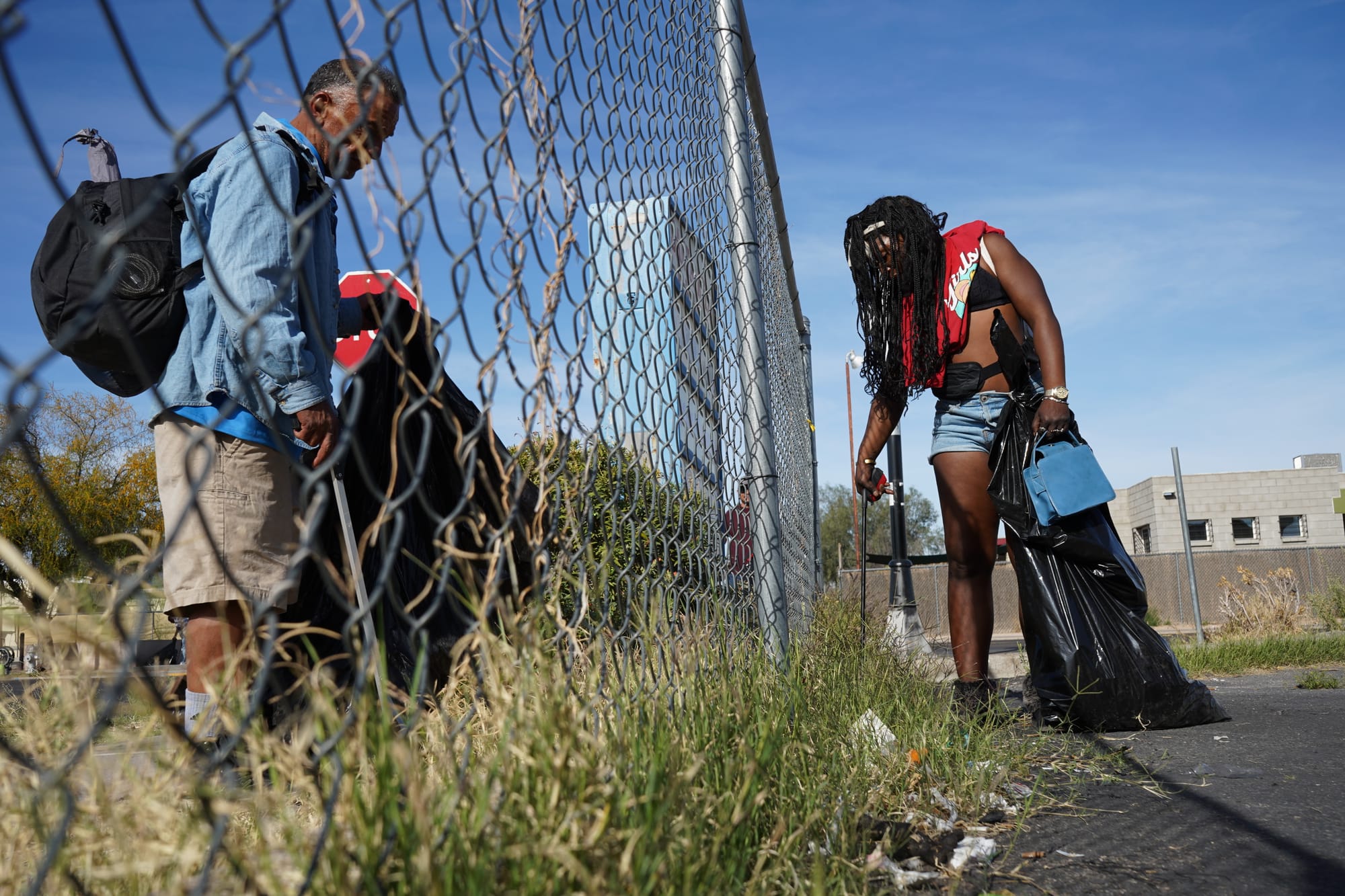
The program is currently providing housing to two participants at the El Camino Motel, another property owned by Barrios Unidos Land Trust. El Camino had been sitting vacant for almost a year before it was purchased by the land trust, with Valenzuela saying that she hopes the program can kickstart some life into the abandoned building.
The motel only has five livable units, but they look forward to expanding it to offer more. Valenzuela says the keepers who stay there have already helped deter crime on the property.
“We're about housing people. We're about cleaning up the neighborhood and creating respect for ourselves and for them,” Garcia said. “Combining those two now we're knocking out two birds with one stone.”
Keeper Jay has been homeless for a little over a year. She came to Tucson to be closer to her kids, who live in Nogales, Sonora, though she has no idea where they are.
She’d previously lived in Phoenix with her four children and had been paying rent for her two-bedroom apartment and the rent for her husband, who lives in Nogales. She had a job, two cars and sent money to her husband in Mexico, where she’d lived for over 10 years before moving back to Phoenix.
But having to manage everything on her own, Jay became depressed, and decided to return to Nogales with her children.
Her husband was abusive, and after she caught her husband being unfaithful, he took her kids from the home she’d been paying rent for and moved them to an unknown location. She hasn’t been able to see them since.
“I’m going to go find them, I just have to get on my feet first,” she said, fighting back tears.
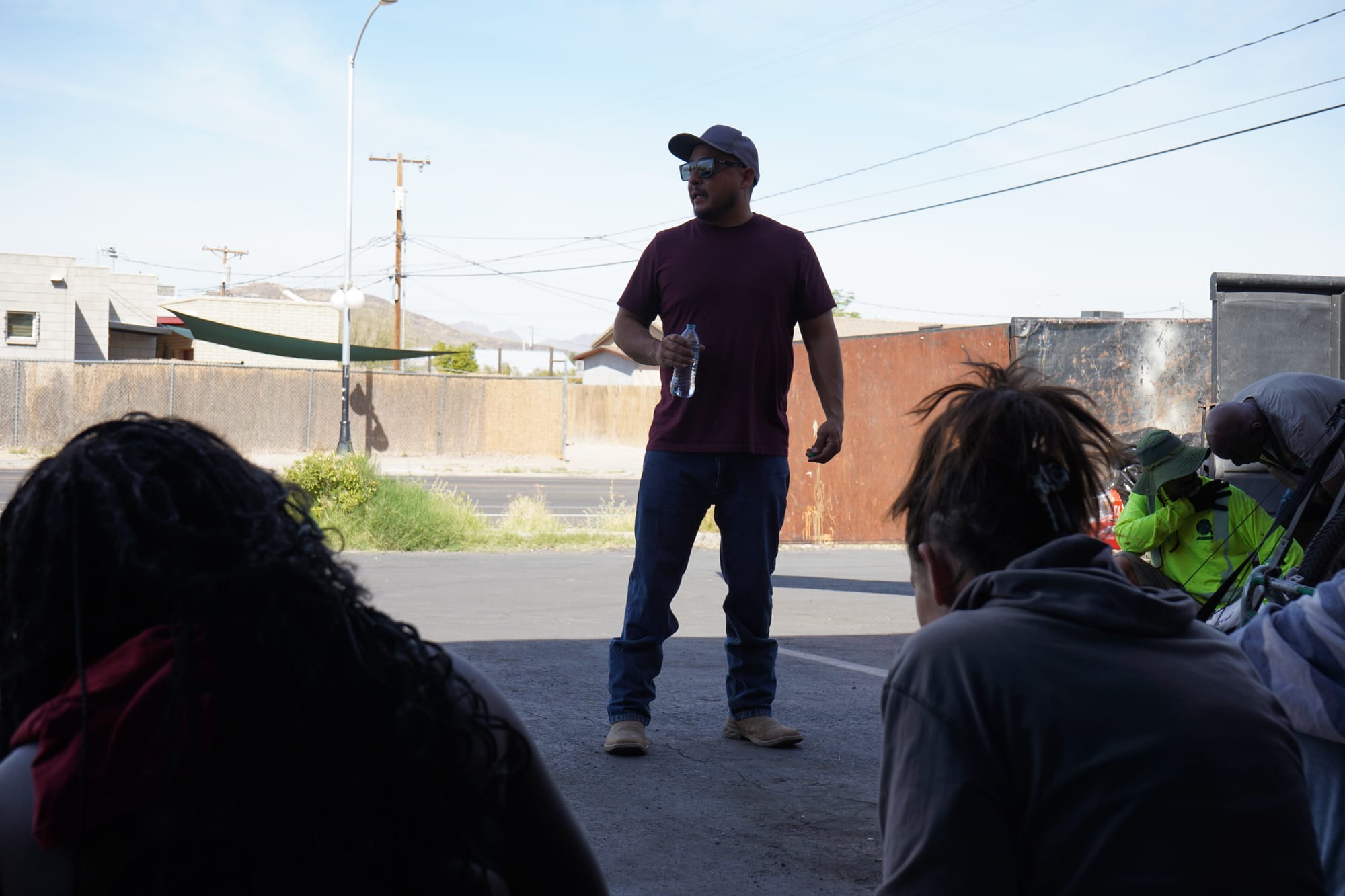
Jay said she feels like help is never going to come. She’s been trying to secure housing since she first landed in Tucson more than a year ago, but has had no luck. She’s tried programs that offer housing and help with job placement but says that a lot of places have a limit on how long a person can stay.
“What’s the point of getting a job if you’re going to be kicked out in 21 days?” she asked.
With no family support and without her children, Jay said she feels stuck.
“We're here waiting. Help! Not all of us want to be out here,” she said.
Tucson has seen an increase in people considered actively homeless, according to a report by Tucson Pima Collaboration to End Homelessness. There’s also been a decrease in beds and units across all project types, reducing the amount of available housing and shelter.
Between 2020-2023, house values increased by 42%, rent increased by 36% and wages at the tenth percentile, and since 2011, the proportion of renters experiencing housing cost burden has steadily increased. The report says that the elevated risk of homelessness is expected to continue through 2025.
“Nobody's perfect. We're trying to get the community involved, and I hope that they see that they're trying,” said keeper Clark, pointing to her fellow volunteers. “So that way we can get respect because there's a lot of people out here that do not respect them and it's crazy. They’re regular people too. We're all coming for the same thing, (we’re) looking for a better opportunity.”
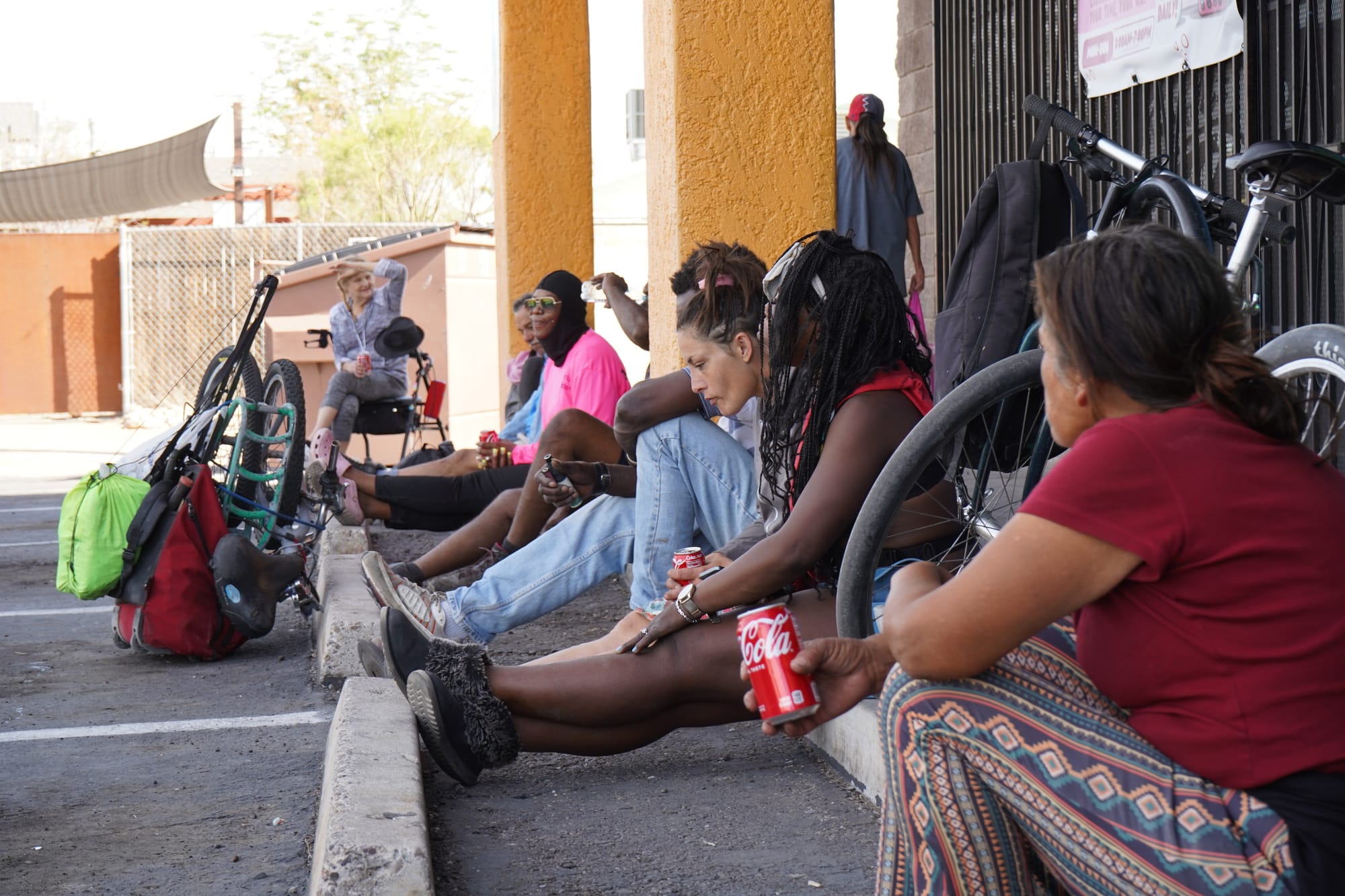
Valenzuela says that a lot of the people Casa Maria works with struggle with mental and behavioral issues and substance abuse.
“We have to meet them where they're at,” Valenzuela said. “And we need help maintaining our community. We need help increasing the quality of life of all of the residents. They're going to be here anyway, they're going to come back, even if they are swept out of here. And they are part of our community, whether we like it or not, so might as well have them have a positive impact on our community.”
Garcia thinks Barrio Keepers can grow and offer countless benefits, not just to the participants but to the community at large. He says he’s seen neighbors respond positively, sometimes in money, other times in burritos.
“We have fun with it,” Valenzuela said. “When they're cleaning they have cumbias, we feed them, they can't wait till the next time that we come out and just hang out, for them we're hanging out.”
“It's a whole vibe,” Garcia said, with a smile.
To the pair, it’s all about redirecting energy into the right things.
At the end of Friday’s outing, Garcia thanked the group of keepers for coming out and having pride in their community.
He passed around a loaf of sourdough bread donated to the group by a friend and a pack of Coca-Cola cans and some water bottles he’d bought from the Lucky M Market.
He also gave each keeper $20 and told them that the money didn’t come from him, but from the community.
“You have a spark inside you still. You're going hard on the streets right now. You have time and energy, you just have to redirect it the right way," Garcia said. "“What you get from us is not just a service. You're supporting people, you're supporting respect, you're supporting the whole neighborhood."
Susan Barnett is Deputy Editor of Tucson Spotlight and a graduate student at the University of Arizona. She previously worked for La Estrella de Tucson. Contact her at susan@tucsonspotlight.org.
Tucson Spotlight is a community-based newsroom that provides paid opportunities for students and rising journalists in Southern Arizona. Please support our work with a paid subscription.


